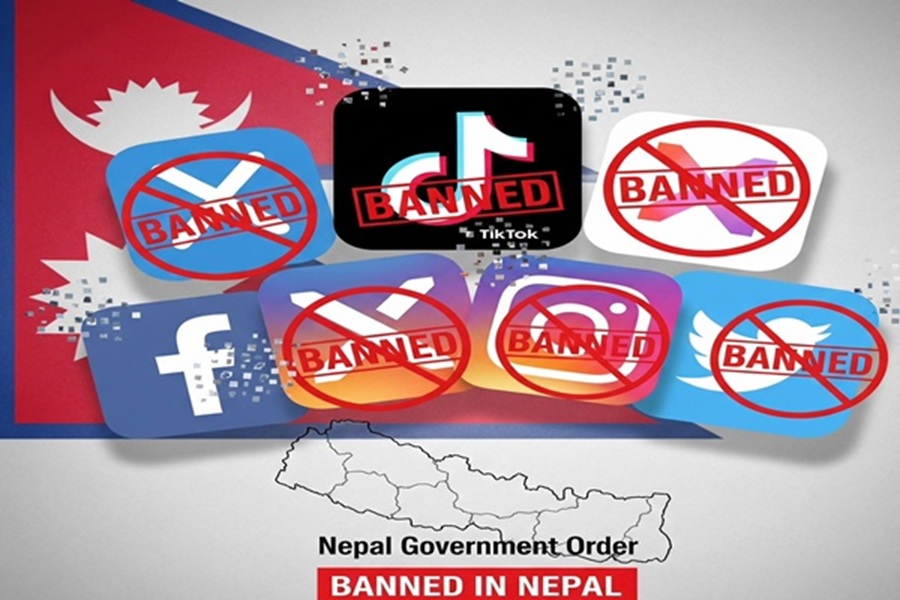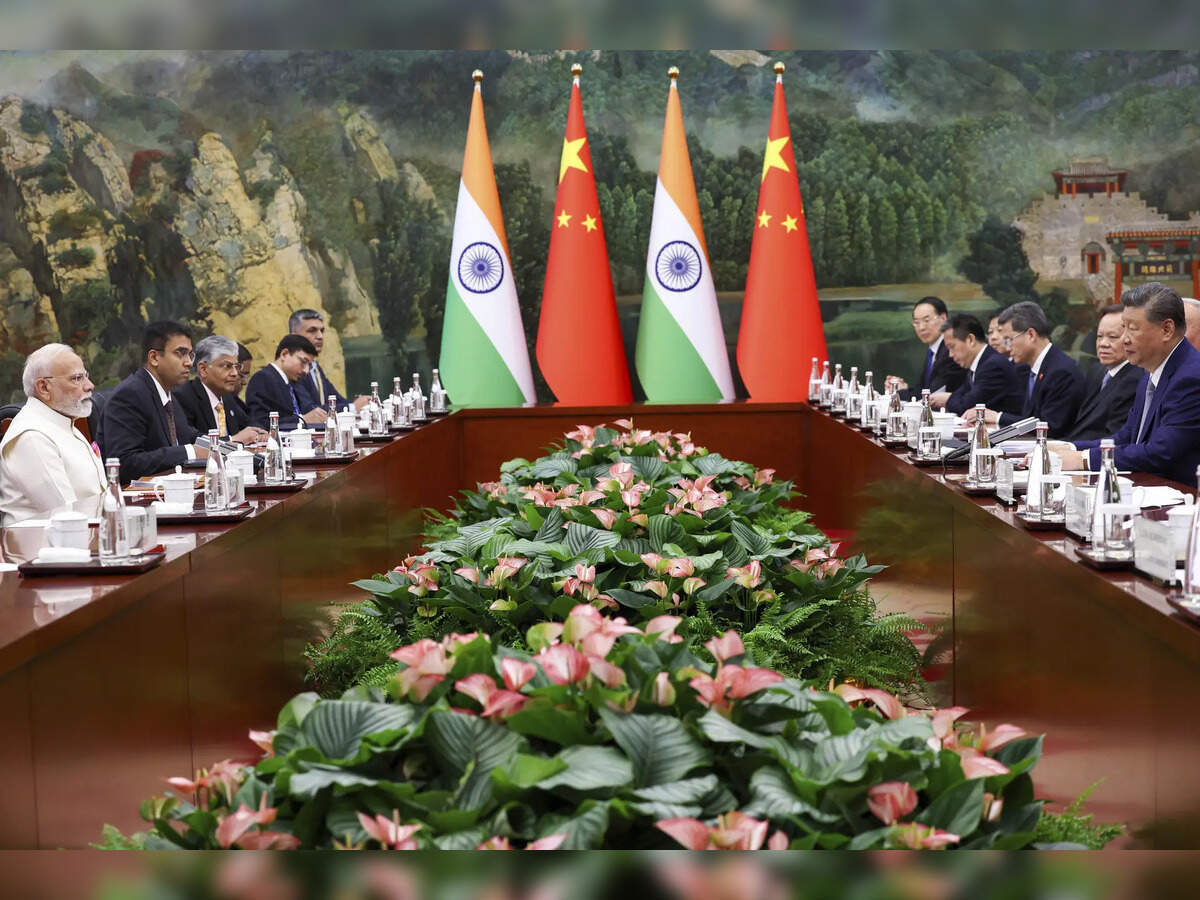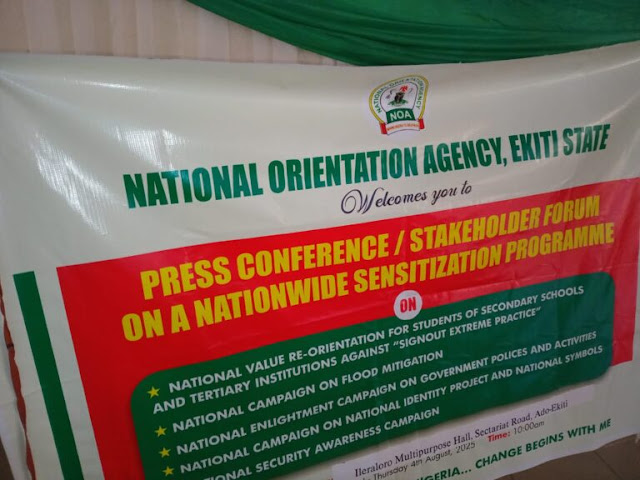Nepal Bans 26 Unregistered Social Media Platforms, Sparks Outrage Among Users and Business Owners
The move follows a recent directive issued by the Ministry of Communications and Information Technology (MoCIT), which had given social media companies a seven-day ultimatum, starting from August 28, to register with the ministry. The platforms were required to establish an office in Nepal and appoint a local representative who would be responsible for ensuring compliance with the country’s regulations under the newly introduced “Directive for Regulation of Social Media Use, 2080.”
Despite the deadline expiring on September 3, 2025, the platforms failed to submit the necessary registration documentation. Consequently, the Ministry instructed the Nepal Telecommunications Authority (NTA) to disable access to these unregistered platforms. The platforms that were banned include some of the most popular and widely used social networks globally, such as Meta’s Facebook, Facebook Messenger, Instagram, WhatsApp, Google’s YouTube, Twitter (X), Reddit, LinkedIn, Snapchat, Discord, Pinterest, Signal, Threads, WeChat, Quora, Tumblr, Clubhouse, Mastodon, Rumble, VK, Line, IMO, Zalo, Soul, and Hamro Patro.
TikTok, Viber, Witk, Nimbuzz, Popo Live and Telegram have successfully registered with the ministry and are exempted from the ban, the decision to restrict these 26 platforms has stirred confusion and unrest across Nepal. The move is expected to impact millions of Nepali users, especially those living abroad, who rely on these platforms for staying in touch with their families back home.
The government’s action was prompted by a Supreme Court ruling that ordered the government to regulate the operations of social media platforms in Nepal, ensuring that they comply with local laws. The Supreme Court had previously emphasized that social media companies must operate within Nepal’s legal framework, discourage the use of fake identities, and be held accountable for their actions.
Despite the government’s intention to regulate the sector, many Nepali citizens view this decision as an overreach that curtails digital freedoms. The Federation of Nepalese Journalists (FNJ) condemned the move, arguing that banning social media platforms without providing viable alternatives threatens freedom of expression, press freedom, and the right to access information as guaranteed by the country’s constitution.
The ban has also caused significant disruption among business owners who use social media platforms for marketing their products. Many small businesses in Nepal have taken to platforms like Facebook, Instagram, and WhatsApp to connect with their customers, particularly during the festive season. Kiran Timsina, co-founder of UG Cakes, Urban Girl, and UG Bazaar, expressed his frustration on Facebook, stating, “No matter what, we gotta thrive in the Republic.” He urged his customers to use alternative platforms like TikTok and Viber to place orders.
The Nepal Telecommunications Authority (NTA), in response to the government’s directive, has started working with internet service providers to block access to the banned platforms. However, as of Thursday evening, the NTA has not yet implemented the full ban, as it is still in the process of coordinating with service providers. The situation has led to growing uncertainty among users, with many rushing to download apps like Viber and Telegram, which remain operational.
The government’s decision to ban these platforms has been defended by Minister Gurung, who explained that the government had made repeated efforts to engage with social media companies through diplomatic channels, but these companies refused to comply with the registration requirements. “We have tried to hold discussions, but the companies ignored our requests, which is why we have taken this step,” said Minister Gurung.
However, experts have criticized the move as short-sighted, arguing that it could have far-reaching consequences on social, economic, and constitutional rights in Nepal. Santosh Sigdel, executive director of Digital Rights Nepal, stated, “This is a harsh move. Shutting down social media will impact social, economic, cultural, and constitutional rights. It will also affect the rights guaranteed by Nepal’s constitution regarding the digital space.”
In recent months, the Nepalese government has implemented a pattern of bans on digital platforms. TikTok, for example, was banned in November 2023 due to concerns over its impact on social harmony, only to be lifted in August 2024 after ByteDance, the company behind TikTok, pledged compliance with local regulations. Similarly, Telegram was banned in July 2025 due to its alleged involvement in online fraud and money laundering.
The government’s decision also highlights the growing importance of social media in Nepal, with platforms accounting for nearly 80 percent of internet traffic. According to the 2024 Data Reportal figures, there are 13.5 million active Facebook users in Nepal, 10.85 million Messenger users, and 3.6 million Instagram users. Given that social media plays a significant role in education, health, and professional sectors, the sudden ban is expected to have a profound impact on these industries as well.
Moreover, with over 5 million Nepali citizens living abroad for work or study, many of whom rely on social media platforms to stay connected with their families, the government’s decision has sparked backlash from the diaspora community. Critics argue that the move will sever the primary means of communication for many Nepalis living in foreign countries.
The confusion over the ban also led to a surge in traffic on alternative messaging apps like Viber, with users flocking to the app’s download page on the Google Play Store. Reports suggest that the Play Store struggled to handle the increased traffic as Nepali users sought alternatives to Facebook, WhatsApp, and Instagram.
As the ban continues to unfold, many remain uncertain about the future of social media in Nepal. The government’s approach has raised important questions about the balance between regulating digital platforms and safeguarding the rights of citizens to access information and express themselves freely in the digital age. While some argue that regulation is necessary to ensure accountability, others warn that such moves could stifle free expression and hinder Nepal’s digital economy.
As of now, the government has made it clear that it will allow these platforms to resume operations if they meet the registration requirements. But until then, the fate of social media in Nepal hangs in the balance, leaving millions of users, businesses, and even government officials uncertain about what lies ahead.









